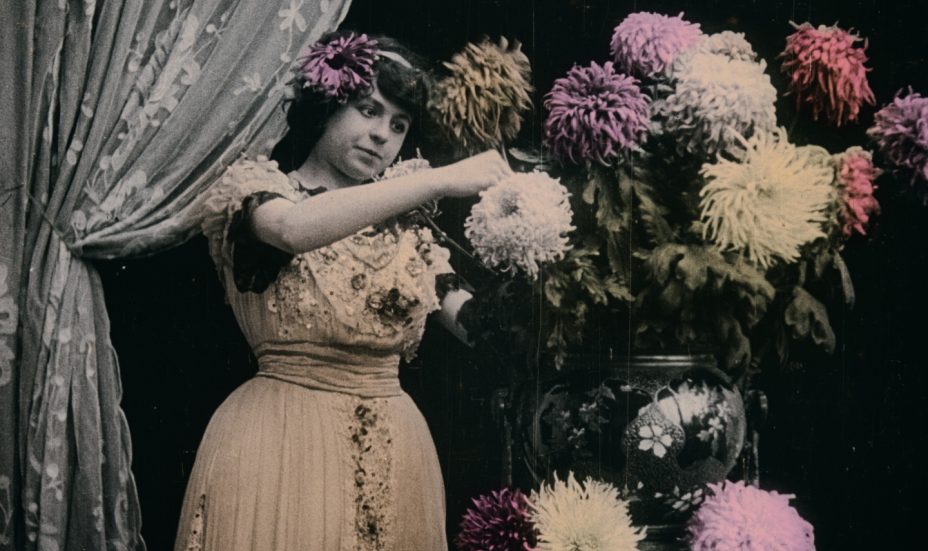
Tickets: https://franciaintezet.jegy.hu/
HUF 1 000 (Free with IF PASS)
14:30 - Hungarian cinema through French eyes
Film selection, FR, 106’ | French with HU subtitles
Living and Filming in Hungary, documentary, color, 1971, FR, 53’ | French with HU subtitles
Directed by Jean-Louis Comolli
Screenplay by Janine Bazin, André S. Labarthe
Cast: István Szabó, István Gaál, Sándor Sára
Young Hungarian Cinema: Miklós Jancsó, documentary, color, 1969, FR, 53’ | French, Hungarian with HU subtitles
Directed by Jean-Louis Comolli
Screenplay by Janine Bazin, André S. Labarthe
Cast: Miklós Jancsó, Zsolt Kézdi-Kovács
Cinéastes de notre temps is a French television documentary series launched in 1964, featuring in-depth interviews with film directors and offering insight into their creative processes. The two episodes presented here, filmed in Hungary in 1969 and 1971 respectively, paint a portrait, seen from an outsider’s perspective, of the country’s cinematographic landscape. The first features influential Hungarian filmmakers such as István Szabó, Judit Elek, István Gaál, András Kovács, Félix Mariássy, Ferenc Kósa, and Sándor Sára, discussing theories of cinema as well as Hungarian society and its tensions. The second focuses on Miklós Jancsó.
Audrey Birrien, project manager at the French National Audiovisual Institute (INA).
17:00 - Cineconcert: The Sound of Silence
A selection of silent films, 129’ | HU and ENG Subtitles
Fantastic Flowers, A selection of silent films 1906–1920, NL, BE, AT, 60’ | Silent films, intertitles in Dutch, HU and ENG subtitles
Miss Harry’s Femme Serpent, 1911, France, 3’ |dir: Pathé Frères | Silent Film
A Vanished World, 1922, AT, 66’ | dir: Alexander Korda | Silent film, intertitles in Csech, HU and ENG subtitles
Musician: Darvas Kristóf (piano)
Two moods, two journeys wrapped in a single programme.
Fantastic Flowers is a vibrantly colourful silent film etude put together from motion pictures produced between 1906 and 1920. The films covering several genres include documentary footage, costume performances and special effects – but one theme is common: flowers, everywhere and of all kinds. The film was made in a collaboration involving Eye Filmmuseum of Amsterdam, Brussel’s Cinematek and Austrian Film Archive. During restoration, technicians found it extremely challenging to convey the original vision created using stencilled colouring technique.
Sándor Korda’s picture A Vanished World (Ábránd és valóság, 1922) made in Austria is an adaptation of the novel Serpolette by Lajos Bíró. The true prototype of the book and the film is the dramatic story of the son of the Grand Duke of Tuscany, Archduke Johann Salvator. Born into an aristocratic family, he turned his back on the royal court, purchased a ship and lost his life at sea in a storm together with his great love, an opera dancer. But what might have occurred prior to the hurricane? This elegant and spectacular film that has survived in fragments only (and was restored by the Austrian Film Archive) provides one possible version of the tale. It features Mihály Várkonyi (Victor Varconi), Pál Lukács (Paul Lukas) and the deliciously seductive Maria Corda, all of whom went on to become Hollywood stars. The two programmes are linked by a curiosity: Miss Harry’s Femme Serpent….
The screening will be introduced by Barkóczi Janka, film historian and archivist at the Hungarian National Film Institute.
19:30 - Any Number Can Win
Crime, b&w, 1963, FR, IT, 121’ | dir: Henri Verneuil | Cast: Jean Gabin, Alain Delon | French with HU and ENG subtitles
Directed by Henri Verneuil
Written by Zekial Marko
Screenplay by Albert Simonin
Director of photography: Louis Page
Music by Michel Magne
Cast: Jean Gabin, Alain Delon, Maurice Biraud
Henri Verneuil’s stylish film noir follows a recently released gangster preparing for his last big hit: turning over the Palm Beach casino in Cannes. The plan is flawless, everything rests on his partners in crime. Two legends on the screen together: the reserved, calm stoic and the gritty, irrepressible predator – Gabin and Delon. Côte d’Azur, cool shades, half-smoked cigarettes, ice blue, piercing stares… and the final job – elegance, silence, perfection.
Supporting film: Interview with Henri Verneuil and Alain Delon for "Mélodie en sous-sol"
French documentary, b&w, 1963, FR, 3’ | French with HU and ENG subtitles